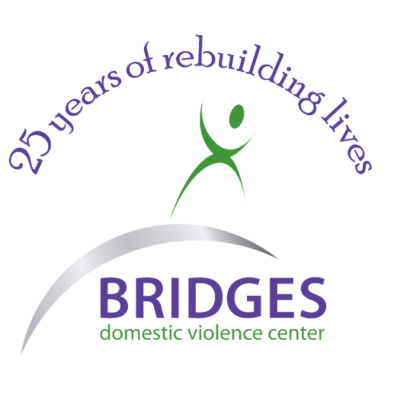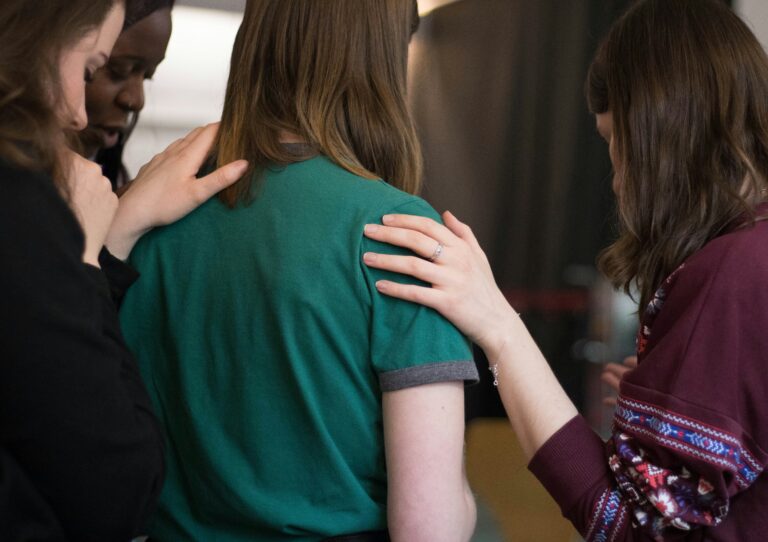Domestic violence is a pervasive issue that affects individuals across all walks of life, transcending the boundaries of age, gender, and socioeconomic status. The journey to healing from the trauma of domestic violence is often arduous and complex. In this blog, we delve into the transformative role that a support group plays in aiding survivors on their path to recovery.
How Does A Support Group Benefit Domestic Violence Survivors?
At Bridges Domestic Violence Center, we offer support groups for survivors. Our domestic violence support groups provide a safe and caring environment and an encouraging space for healing and personal growth to victims and survivors of abusive relationships. No one should ever have to face their trauma alone.
Here are just a few of the ways that domestic violence support groups benefit survivors:
- Provide a Safe Space. Support groups provide confidential, safe environments for survivors to share their experiences without fear of judgment. This shared space fosters a sense of belonging and understanding, allowing survivors to open up about their struggles and begin the healing process.
- Validate and Empower. Survivors of domestic violence often grapple with feelings of shame, guilt, and isolation. Support groups validate these feelings as legitimate responses to trauma, empowering survivors to recognize that they are not alone. The shared narratives within the group help survivors regain a sense of self-worth and agency.
- Offer Peer Support and Connection. Connecting with others who have faced similar challenges can be a powerful catalyst for healing. Support groups facilitate peer-to-peer support, enabling survivors to draw strength from one another. These connections foster a network of understanding and encouragement that is vital for overcoming the aftermath of domestic violence.
- Introduce Coping Strategies. Navigating life after domestic violence requires developing effective coping strategies. Support groups offer a platform for survivors to learn and share coping mechanisms that have proven beneficial. Whether mindfulness exercises, journaling, or other therapeutic techniques, survivors can discover what works best for them through these collective experiences.
- Provide Professional Guidance. Support groups are often led by trained professionals, such as therapists or counselors, who can provide expert guidance. These leaders offer survivors valuable insights, coping tools, and resources, ensuring that the support group remains a structured and constructive environment for healing.
- Break the Cycle of Isolation. Domestic violence often isolates survivors from friends and family. Support groups break this cycle of isolation by reintroducing survivors to a community of understanding individuals. Rebuilding social connections is crucial for the overall well-being of survivors, helping them regain trust in others.
- Encourage Accountability and Growth. Support groups enable survivors to take accountability for their healing journey. By providing a space for reflection and self-awareness, survivors can set goals, track progress, and celebrate achievements. This process of self-reflection promotes personal growth and resilience.
What Can Bridges Domestic Violence Center Do To Help Me Recover From Domestic Violence?
The transformative impact of support groups extends beyond the individual, contributing to the broader movement to raise awareness and break the domestic violence cycle in our communities – but there are additional services and resources that Bridges Domestic Violence Center offers.
In addition to our support groups, here are some other services we provide:
- Temporary shelter
- Safe space for your children and pets
- Crisis intervention
- Child Advocacy
- Court Advocacy
- Batterer’s intervention
- Case management
Once you are in a safe space with support, you can take steps towards achieving a better mental balance, such as eating well, sleeping better, and giving yourself the attention and care you deserve.
If you are in the Williamson County area, Bridges Domestic Violence Center is here for you. Getting assistance from an organization like BDVC can help you create new goals to assist you in healing and growing. Our not-for-profit, non-discriminatory organization offers life-changing services and programs free of charge to anyone who has experienced physical, mental, or sexual abuse.
As the only domestic violence shelter in Williamson County, Tennessee, Bridges Domestic Violence Center is dedicated to helping victims and survivors find safety and independence. Contact us today if you need help.
We are a member agency of United Way of Greater Nashville.

